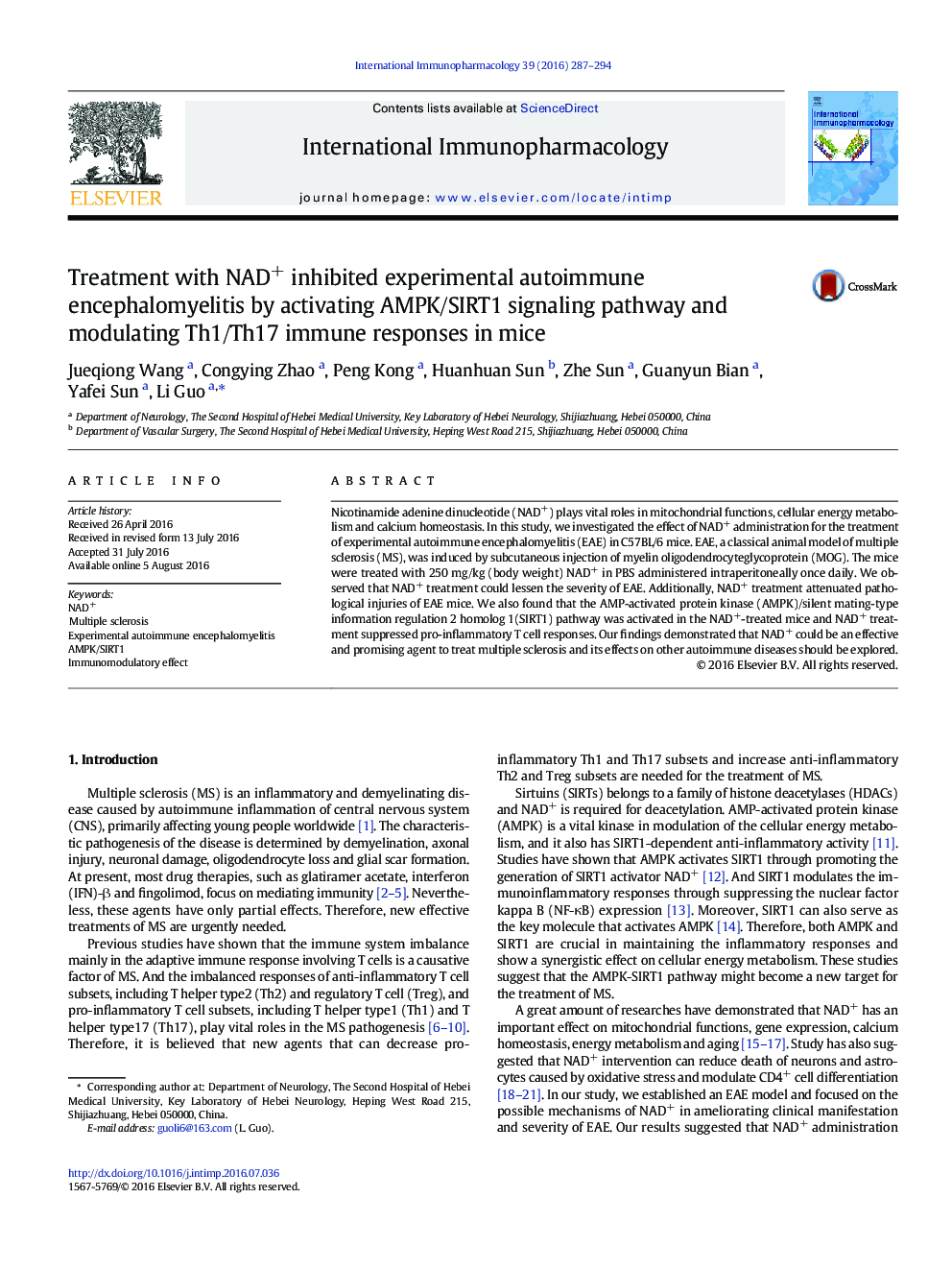| Article ID | Journal | Published Year | Pages | File Type |
|---|---|---|---|---|
| 2540218 | International Immunopharmacology | 2016 | 8 Pages |
•We explored that NAD+ treatment can lessen the severity of EAE and hypothesized the mechanisms underlying its effects.•NAD+ treatment inhibited the development and progression of EAE and mitigated inflammation by reducing inflammatory infiltrates, demyelination and axonal loss.•NAD+ treatment inhibited inflammatory responses by activating the AMPK/SIRT1 pathway and suppressing the activation of NF-κB.•NAD+ treatment could modulate the Th1 and Th17 responses to alleviate EAE.
Nicotinamide adenine dinucleotide (NAD+) plays vital roles in mitochondrial functions, cellular energy metabolism and calcium homeostasis. In this study, we investigated the effect of NAD+ administration for the treatment of experimental autoimmune encephalomyelitis (EAE) in C57BL/6 mice. EAE, a classical animal model of multiple sclerosis (MS), was induced by subcutaneous injection of myelin oligodendrocyteglycoprotein (MOG). The mice were treated with 250 mg/kg (body weight) NAD+ in PBS administered intraperitoneally once daily. We observed that NAD+ treatment could lessen the severity of EAE. Additionally, NAD+ treatment attenuated pathological injuries of EAE mice. We also found that the AMP-activated protein kinase (AMPK)/silent mating-type information regulation 2 homolog 1(SIRT1) pathway was activated in the NAD+-treated mice and NAD+ treatment suppressed pro-inflammatory T cell responses. Our findings demonstrated that NAD+ could be an effective and promising agent to treat multiple sclerosis and its effects on other autoimmune diseases should be explored.
Graphical abstractFigure optionsDownload full-size imageDownload as PowerPoint slide
